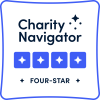The Americans with Disabilities Act (ADA) is watershed legislation that prohibits discrimination on the basis of disability in Employment, State and Local Government Activities, Public Transportation, Public Accommodations, and Telecommunications Relay Services. The Act ensures civil rights protections that guarantee physical access accommodations, as well as services and a justice system that protects basic human rights. This week we celebrate the Act’s 30th anniversary.
In all sectors, including arts and culture, the ADA mandates physical accommodations so that individuals with disabilities can access museums, theaters, concert halls, and other public spaces. In the not so distant past, entrances weren’t wide enough to accommodate wheelchairs, including in bathroom stalls. Now we have so much more—accessible, entrances, seating, closed captioning and equipment for those with hearing impairments. It’s not enough, and more needs to be done, but the ADA opened the world for people with disabilities to be not just observers, but also participants.
Arts and culture benefit from the rich heterogeneity of our society, as do we. The voices of artists with disabilities have been and continue to be enriching and essential. In Baltimore, we see amazing output from the artists at Make Studio. George Ciscle, who among his many accomplishments founded and directed the Exhibition Development Seminar, Curatorial Studies Concentration, and MFA in Curatorial Practice at MICA, has created a partnership with ARC Baltimore which offers a residency for ARC artists with professional artists in their studios. What an amazing opportunity for all parties to grow and learn from one another.
As with all civil rights movements, this one is still a work in progress. Some theaters on Broadway and elsewhere have positioned accessible entrances in the alley by the trash cans, and technology has yet to catch up. COVID, by taking activities and events into virtual space is making some accommodations like closed captioning more commonplace. There is hope.
If you want to learn more, the ADA National Network has an excellent compendium that includes resources for cultural administrators, museums, parks, and recreation. It also has links to the National Endowment for the Arts, the National Center on Accessibility, and other resource-rich organizations.
To send you off, here’s a little clip from our beloved Liz Lerman’s Ferocious Beauty: Genome-All Abilities. Liz has always been on the frontline insisting that everyone gets to dance.
Congratulations to LaToya M. Hobbs for winning the 2020 Janet & Walter Sondheim Artscape Prize! Hobbs’ work deals with figurative imagery that addresses the ideas of beauty, cultural identity, and womanhood as they relate to women of the African Diaspora. Congratulations LaToya!
Be well,
Jeannie
P.S. If you appreciate this newsletter and the mission of GBCA, I hope you will consider making a financial contribution so that we may continue to work on behalf of the cultural sector and people throughout the region. You can make a secure gift online through GBCA’s website. Thank you in advance.

